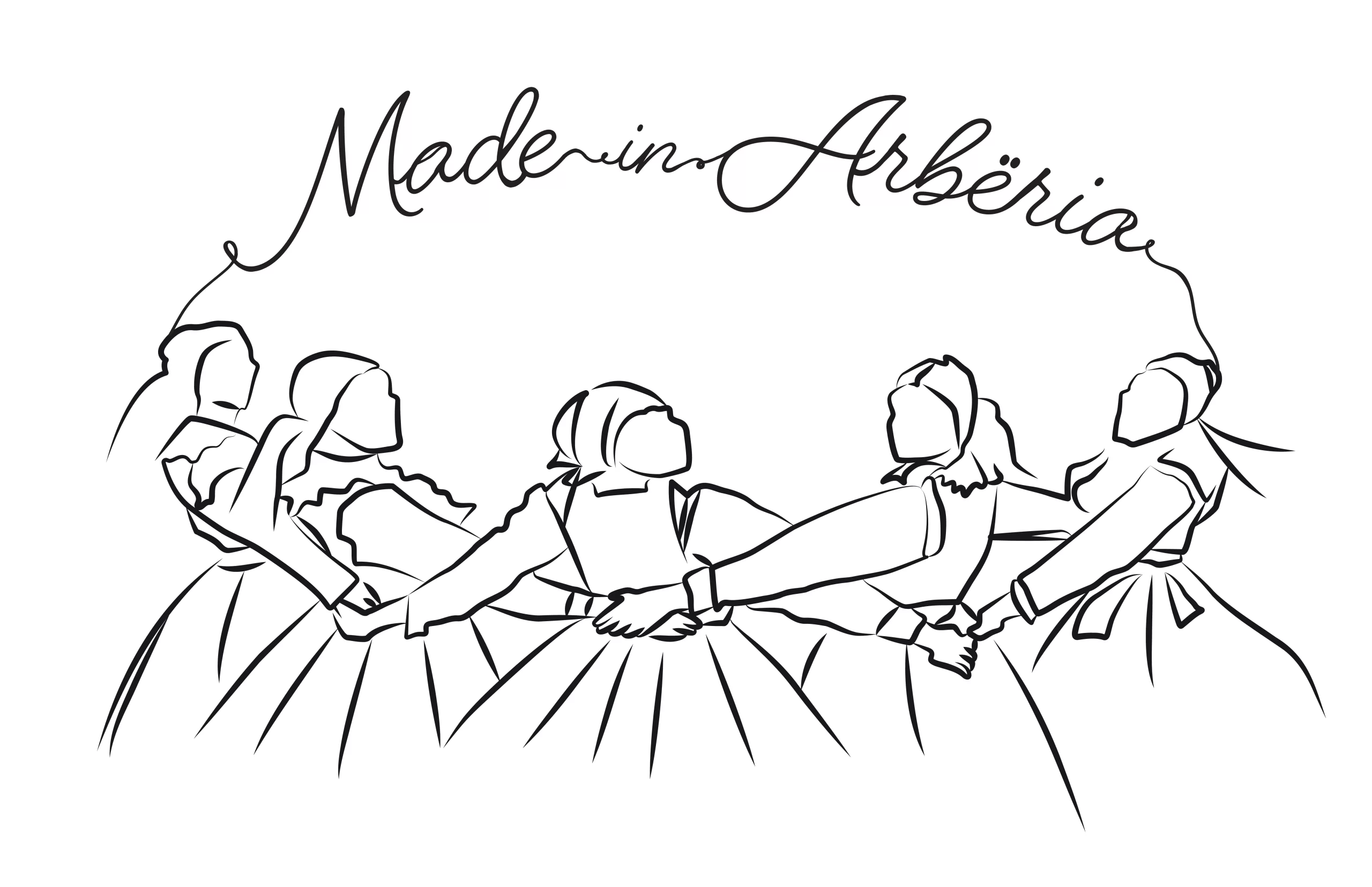Products
At the heart of Arbëreshë communities, the connection to the land and craftsmanship have always been fundamental. From olive oil produced using traditional methods to jams prepared using ancient recipes, every agricultural and food product is a testament to respect for the land, and craftsmanship has always been fundamental. Arbëreshë artisans keep ancient techniques alive in woodworking, ceramics, and textiles, offering unique objects that express the cultural identity of this tradition.
Our Favorite Categories
Discover the best Arbëresh products – from traditional wines to premium oils and authentic cheeses. Each product tells the story of our heritage.
Wine in Arbëreshë Culture: A Bridge Between Italy and Albania
The winemaking tradition is deeply rooted in both Albania and the Arbëreshë communities present in Italy since the 15th century. When the first Albanian exiles settled in Calabria, Basilicata, Sicily, and Molise, they brought with them agricultural knowledge, spirituality, and ancestral wisdom, including grape growing and winemaking, adapting them to their new lands.
In the Arbëreshë territories of Italy, wine production has been intertwined with local native grape varieties: in Calabria, with varieties such as Magliocco and Gaglioppo; in Basilicata, with Aglianico del Vulture; in Sicily, with varieties such as Nero d’Avola in the Contessa Entellina area; and in Molise, with Tintilia. Although there are no exclusively “Arbëreshë” wine denominations, many Italian-Albanian villages have been producing wine artisanally for centuries, primarily for family or community use, maintaining traditional fermentation, bottling, and storage techniques. In Albania, wine has an ancient history, with roots dating back to the Illyrian era. The most well-known Albanian grapes are Kallmet, a red grape native to the north of the country, and Shesh i Bardhë and Shesh i Zi, grown in the Tirana and Durrës areas. However, the influence and spread of Albanian wine abroad is more recent than that of Italian winemaking.
For the Arbëreshë, wine is not just an agricultural product, but a symbol of identity, used in Byzantine religious rites, weddings, and community celebrations.
EVO Oil: The Green Gold of Arbëreshë Culture
Extra virgin olive oil has been central to the agricultural and spiritual life of Arbëreshë communities for centuries. Since the first settlements in southern Italy, Albanian exiles have continued to cultivate olive trees, integrating seamlessly into the local agricultural culture. Oil is more than just a food: it is a symbol of blessing, peace, and continuity between generations.
The olive varieties grown are often native to Italian regions, such as:
Carolea and Tondina in Calabria
Ogliarola del Vulture in Basilicata
Biancolilla and Nocellara del Belice in Sicily
The olive groves are often small, family-run, and cultivated using traditional techniques. Manual harvesting and cold pressing are still widespread practices, ensuring a product of the highest quality.
🕯️ A spiritual symbol
In the Arbëreshë tradition, influenced by the Byzantine rite, oil also has a sacred meaning: it is used in baptisms, house blessings, and during liturgical celebrations.
“As oil lights the lamp, so faith keeps our memory alive” – an ancient Arbëreshë saying.
🇦🇱 Connection with Albania
Olive oil is also an ancient product in Albania, particularly in the areas of Berat, Fier, and Vlora, home to some of the oldest olive trees in Europe. The similarity between Arbëreshë and Albanian agricultural practices is further evidence of the invisible thread that unites the two shores of the Adriatic.





